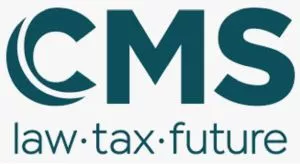While there is a certain alignment between the proposed EU Directive on harmonisation of insolvency law and Luxembourg law, Luxembourg legislation will a priori need to be amended on several key points to be in line with the Proposal.
Preferences
Rules governing the avoidance of preferences (article 6 of the Proposal) find their equivalent in articles 445 and 446 of the Luxembourg Commercial Code.
Some marginal amendments are likely to be required, inter alia to reflect:
- The presumption under art. 6.2.(b) of the Proposal that a party close to the debtor has knowledge of the debtor's cessation of payments.
- The derogation under art. 6.3 of the Proposal that offers the following protection from avoidance actions: legal acts performed directly (i.e. promptly) against fair consideration to the benefit of the insolvency estate, which applies also to cases where the creditor had knowledge of the debtor's cessation of payments.
Also, the Proposal confirms that financial collateral arrangements are excluded from avoidance actions.
The most significant changes will come from the period during which the act must have been perfected to be declared void, which in Luxembourg is known as the suspect period.
Currently, the suspect period in Luxembourg starts on the day of the debtor's cessation of payments and ends with the bankruptcy judgment. The date of the cessation of payments is set by the court but cannot be sooner than six months prior to the bankruptcy judgment (which, in fact, is the date that the courts will choose by default). For certain acts, this period is extended by ten days.
Under the Proposal, the relevant date is not the cessation of payments but the submission of the request for the opening of insolvency proceedings. The relevant period for preferences starts three months prior to that date.
Legal acts against no or a manifestly inadequate consideration
Rules governing the avoidance of such acts (article 7 of the Proposal) find their equivalent in article 445 of the Luxembourg Commercial Code.
While, however, the current “suspect period” for these acts starts ten days prior to the date of the cessation of payments, the Proposal provides that these acts can be declared void if perfected within one year prior to the submission of the request for the opening of insolvency proceedings or after the submission of such request.
Legal acts intentionally detrimental to creditors
According to the Proposal, legal acts by which the debtor has intentionally caused a detriment to the general body of creditors shall be declared void if the other party to the legal act knew or should have known of this intent.
This rule finds its equivalent under article 448 of the Luxembourg Commercial Code. While this article simply refers to acts made to defraud the creditors, Luxembourg courts typically require proof that the other party was an accomplice to this fraud, thus achieving a result similar to the Proposal.
Under Luxembourg law, there is no limit in time as to when the act was perfected to be caught by article 448 of the Commercial Code. Therefore, this would not be impacted by the Proposal, which requires a minimum period starting four years prior to the submission of the request for the opening of insolvency proceedings.
Consequences of avoidance actions
The consequences of avoidance actions as detailed in the Proposal are again similar to Luxembourg law. Some amendments, however, may be required to reflect and perhaps clarify the rule under article 11.2.(b) of the Proposal on the liability of third parties who, as successor to a party who benefited from a legal act that has been declared void, can also be liable on the condition that (i) they acquired the asset against no or a manifestly inadequate consideration; and (i) they knew (or should have known) the circumstances on which the avoidance action is based.
The content of this article is intended to provide a general guide to the subject matter. Specialist advice should be sought about your specific circumstances.

